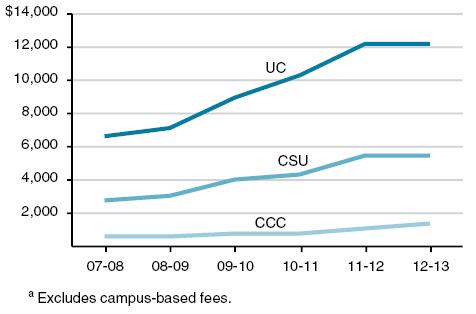Since 2002, campus-based fees have increased 283 percent with increases occurring nearly every year. This year, California State University Chancellor Timothy White and the Board of Trustees have granted Student Success Fees to several campuses. On Nov. 13, students from different California State Universities arrived in Long Beach to address White and the Board of Trustees and address the issue of fee increases.
“The ‘Well, that’s the way it is,’ attitude from not only university systems, but state legislatures alike should be a great cause for red flags. Not only with students caught up in fee increases, but for the American public as well,” said Ryan Robello, San Francisco State University student. “Without easy or affordable access to higher education, the American standard of living is sure to decrease, and the American Dream could be something of the past.”
The meeting had CSU students united as one to protest the discontinuance of fee increases. Students and supporters were outside of the building promoting the anti-student success fee. Inside of the building, students took advantage of the public comment section in front of the board. Students addressed the issue of fee increases and how it negatively affects students in college, out of college and students who are considering attending a university system school.
“I always thought education was an investment to our own future success, and should only come at the price of hard work and dedication. However, now I fear that it’s the complete opposite of that. Still it being an investment, but now more of the fiscal variety, and not even to our own portfolio,” said Derek Biner, California State University, Fresno student. “Students, already, have to work more hours than they are at school to afford it, and many are also forced to take out student loans which may hamper them with tens of thousands of dollars in debt for years to come.”
In 2012, a survey was given to California State University students, regarding the fee increase and how it will affect them. Results showed 68 percent of surveyors said that these fees would force them to take on more loans, 59 percent said they would need to take on more hours at their job to make payments. Students feel that an alternative to student success fees is an increase in classes.
With more classes, students are able to graduate faster, therefore avoiding any added time that causes students to make more payments. In fact, 88 percent of students surveyed feel that having the opportunity to receive more classes would benefit them academically and financially.
“We want to graduate. We just can’t get the classes we need,” said Maria Lopez from California State University, Long Beach. “I’m feeling my wallet get smaller and smaller, while my campus administrators’ pay gets bigger and bigger. Its time they stop clowning around and start prioritizing what students really need.”
Seventy-five percent of California State University students work and have an income. The College Board Advocacy and Policy Center preformed a study in 2010 and found that student loan users using $30,000 or more occurred more frequently among the 27 percent of African American bachelor degree recipients as opposed to the 16 percent Caucasian recipients. In 2012, the Center for American Progress created a survey that found that 14 percent of all Latinos in America who are older than 25 graduated from college as opposed to the 34 percent of Caucasians in America with their bachelors degree.
A similar survey found that these results have to do with the fact that these students are financially torn, making them have to choose between helping support their families or choosing college. Increased academic fees have proven that the financial aspect of college is a burden to the hardworking student who strives for education.



































